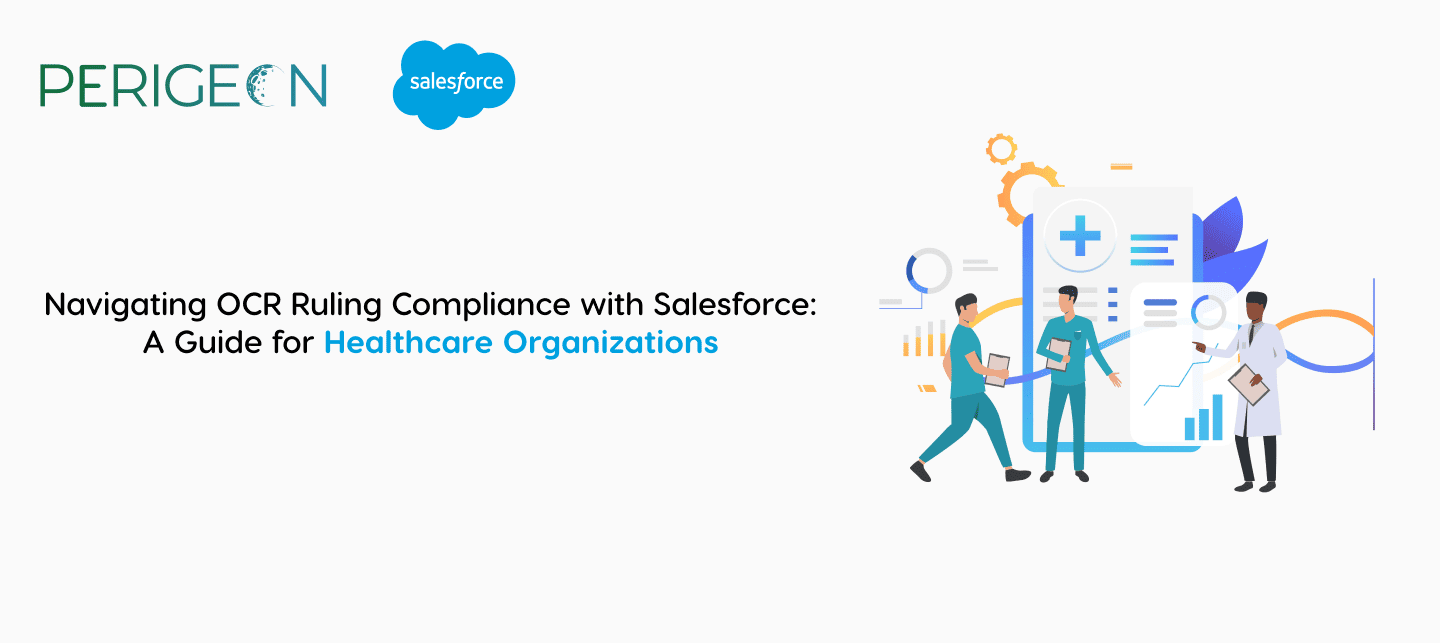In the ever-changing landscape of healthcare regulations, the Office for Civil Rights (OCR) rulings play a critical role in ensuring patient data privacy and security. Compliance with these rulings is not optional—it’s essential to protect your organization from legal risks, safeguard patient trust, and streamline operations.
Salesforce, with its robust security features and customizable capabilities, offers a comprehensive solution for healthcare organizations to stay compliant with OCR rulings while enhancing operational efficiency.
What is the OCR Ruling?
The OCR enforces privacy and security rules under the Health Insurance Portability and Accountability Act (HIPAA) and other healthcare laws. Its rulings mandate how healthcare organizations and their partners handle Protected Health Information (PHI) to ensure privacy, security, and accessibility.
Failure to comply can result in severe penalties, including fines and reputational damage.
How Salesforce Helps with OCR Compliance
1.Secure Data Management
Salesforce provides HIPAA-compliant infrastructure, ensuring PHI is stored, accessed, and shared securely. Features like encryption, role-based access control, and audit trails keep your data safe.
2.Streamlined Workflows
Automate workflows for tasks such as patient intake, claims processing, and appointment scheduling, ensuring consistent compliance with OCR rules.
3.Real-Time Monitoring and Alerts
Salesforce’s dashboards and analytics help monitor data usage and flag potential compliance risks in real-time.
4.Customizable Solutions
Tailor Salesforce to your organization’s needs, including privacy and security protocols specific to OCR guidelines.
5.Third-Party Integration
Integrate with electronic health record (EHR) systems and other healthcare tools to create a seamless, compliant ecosystem.
Use Cases of Salesforce for OCR Compliance
1.Patient Data Protection
Securely store and share PHI while ensuring compliance with HIPAA and OCR guidelines.
2.Incident Tracking and Reporting
Quickly identify, track, and report potential security breaches or compliance issues.
3.Provider-Payer Collaboration
Facilitate secure communication and data sharing between healthcare providers and payers.
4.Audit Readiness
Maintain detailed records and audit trails to simplify compliance reporting during OCR audits.
How Perigeon Can Help
At Perigeon, we specialize in Salesforce implementations tailored to healthcare compliance needs. Here’s how we can assist:
- Customize Salesforce workflows to meet OCR and HIPAA requirements.
- Integrate third-party systems for seamless data sharing and management.
- Provide ongoing support to ensure your platform adapts to evolving regulations.
- Train your team to leverage Salesforce for enhanced compliance and efficiency.
Conclusion
Staying compliant with OCR rulings is critical for healthcare organizations, but it doesn’t have to be overwhelming. By leveraging Salesforce’s advanced features, you can safeguard patient data, streamline workflows, and ensure regulatory compliance with ease.
Ready to align your organization with OCR rulings? Contact Perigeon today to get started!






